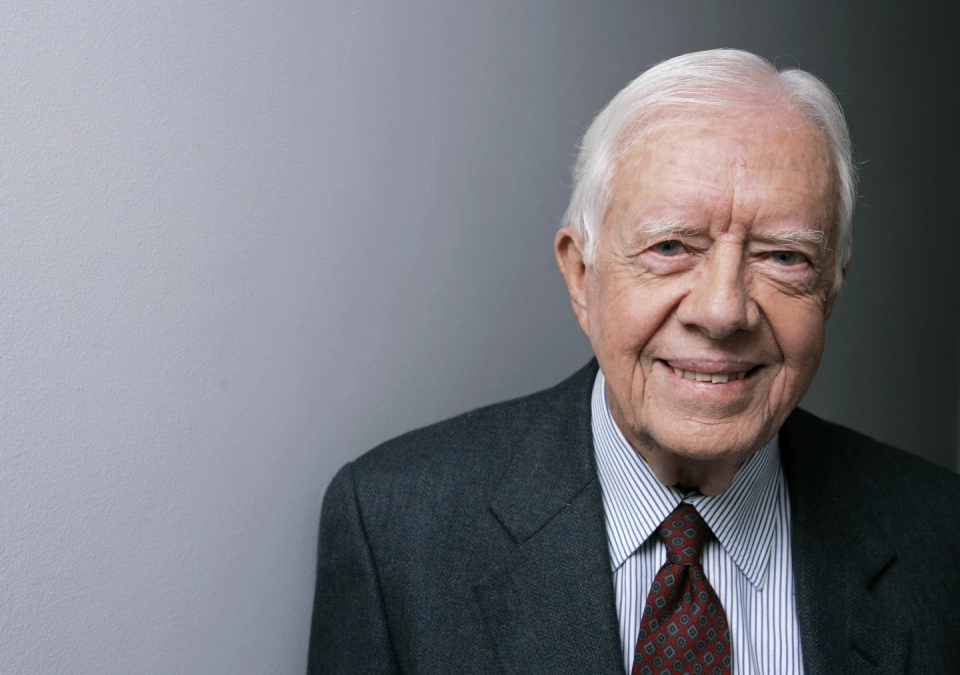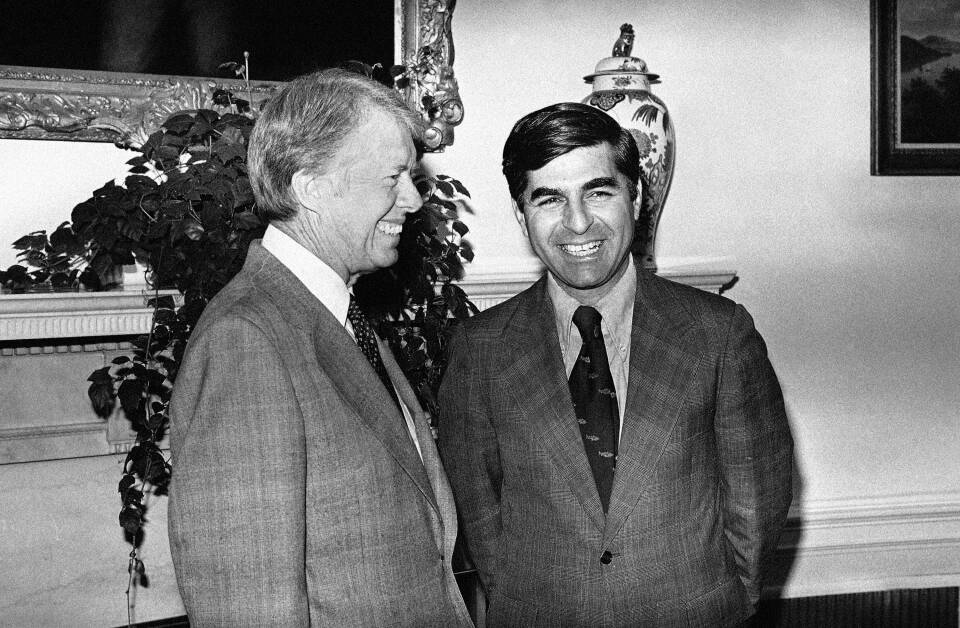One Sunday morning in the 1970s, Margaret McKenna had been playing tennis when her friends who worked on Capitol Hill invited her over to meet Jimmy Carter, the then-governor of Georgia who was running for president. McKenna arrived in her tennis clothes.
“And that’s how I met him. I was very impressed — somewhat embarrassed that I had taken it so lightly — but I was immediately taken with his authenticity and sense of integrity,” McKenna told Boston Public Radio on Thursday.
After Carter’s inauguration, McKenna joined the administration as White House deputy counsel and the deputy undersecretary of education. She later became the president of Lesley and Suffolk universities.
Carter passed away this week at the age of 100. Reflecting on their time working together, McKenna said Carter was “not a warm, fuzzy guy,” but remembers him as someone always determined to do the right thing. Even when McKenna didn’t agree with the president, she trusted that he was acting in service of the American people.
McKenna said people don’t always appreciate what he was able to achieve during his one term as president, including pardoning Vietnam War draft evaders, protecting 157 million acres of Alaskan wilderness and increasing the number of female judges — an issue that McKenna worked closely on.
Before Carter took office, only been eight women had served as federal judges in the history of the country. In four years, his administration appointed 40 women judges and 57 judges of color. That long list of appointees included Ruth Bader Ginsburg and Patricia Wald.
“He opened the gates,” McKenna said.
She also remembered Carter as “whip smart” and well prepared. The former president was also adamant about being honest with the public, she recalled.
“He said in the campaign, ‘I won’t lie to you. I’ll be totally transparent.’ Which drove us all nuts,” McKenna said.
Carter even forbade lying during negotiations over control of the Panama Canal.
“‘You cannot make a promise of something you’re not going to do. It’s not right and it’s not good for the country,’” McKenna recalled him saying. Eventually, Carter negotiated the Torrijos–Carter Treaties that gave Panama control of the canal in 1999.
“Why did he do it? Because he wanted better relations with Latin America and to help democracy,” McKenna said. “It was the right thing to do.”








